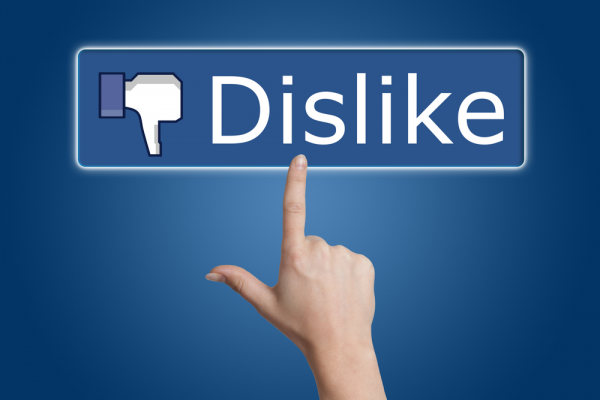10 ways Facebook has annoyed the world

Facebook is celebrating its 10th birthday and will no doubt be looking back in glee at its meteoric rise and bountiful first decade. But it’s not all been clear sailing for the social network giant.
In the 10 years that Facebook has grown from a project in a student room at Harvard University to a multi-million-pound business with 1.23 billion monthly users, it has sparked controversy and mixed opinions.
Here we recall 10 things Facebook has done to annoy people and spark criticism since its 2004 launch.
The Winklevoss lawsuit
Facebook was founded by Harvard student Mark Zuckerberg in 2004. But fellow students, twins Cameron and Tyler Winklevoss, claimed the entrepreneur stole the idea from them after he was hired to code their ConnectU site in 2003. Facebook agreed to a 2008 settlement with the Winklevosses, who received $20m in cash and $45m worth of stock valued at $36 per share. A subsequent appeal for more money was turned down by US courts.
News Feed and Mini-Feeds
Back in 2006 Facebook introduced News Feed and Mini-Feeds to let members see what their friends were doing on the network. The move sparked anger and widespread criticism from members -- with calls for Facebook to be boycotted for a day on 26 September 2006. Luckily after an open letter from Zuckerberg, where he apologised for not rolling out the News Feed changes properly and thanked those who had protested, the boycott was called off.
Beacon advertising tool
In 2007, Facebook introduced Beacon -- a social advertising feature that alerted the friends of a Facebook member when they visited certain affiliated websites. Members were automatically enrolled to Beacon and had to pro-actively opt-out, which led to protests including a Facebook group called ‘Facebook, stop invading my privacy’ gathering more than 60,000 members. Mark Zuckerberg apologised and Beacon was eventually shut down.
Site redesign
Facebook underwent its first major redesign in 2008, resulting in more angry members. Scores of protests were set up to complain about the changes, with thousands of members joining groups such as 'Please Keep the Old Facebook. The New Version is a Disaster' and 'People Against the New Facebook System'. But despite the brouhaha, the new look stayed in place.
Divorces
In 2009, lawyers blamed Facebook for a growing rise of marital breakdowns, with one law firm claiming almost one in five petitions they processed cited Facebook. A 2013 study published in the Journal of Cyberpsychology, Behavior and Social Networking found that people who use Facebook excessively are more likely to "experience Facebook–related conflict with their romantic partners, which then may cause negative relationship outcomes including emotional and physical cheating, breakup and divorce".
'Blasphemous' Facebook banned in Pakistan
A court in Pakistan briefly banned the use of Facebook in the country in 2010 after an Islamic lawyers' group decided a competition on the site was illegal. Facebook members in Pakistan were temporaily unable to access the social-networking site after it was deemed to have broken blasphemy laws.
Privacy settings
In 2010, Facebook made a number of changes to its privacy settings drawing criticism from members as well as the European Commission, which called the changes 'unacceptable'. Thousands (40,788 people) pledged to delete their accounts in protest on 31 May 2010, which they dubbed Quit Facebook Day. Another open letter from Zuckerberg addressing privacy concerns followed and Facebook subsequently introduced simpler privacy controls.
Profile page change
When Facebook introduced a new Profile page layout in 2010 to put more prominence on biographical information and photos, some members reacted angrily to the new design. A few thousand joined the 'Please F.B. put it back the old way' group but this time there was no open letter from Zuckerberg and the profile changes went ahead.
Hate pages, neknominations and beheading videos
Facebook has frequently come under fire over the years for not doing more to tackle offensive content posted on the site through pages and groups, such as hate groups or videos showing people being decapitated. In a 2013 open letter, feminist groups challenged the social network to do more to tackle the promotion of violence, prompting Facebook to admit that its systems to identify and remove hate speech had failed to work as effectively as it would like and it pledged to tackle this. It also said it would remove content that celebrates violence.
However, Facebook has recently rejected calls to ban pages and videos linked to the Neknomination craze, which encourages members to post videos of themselves carrying out stunts while drunk, despite mounting criticism.
People sharing too much
Facebook has celebrated its 10th anniversary with the new Facebook Look Back tool, which lets nostalgic members watch a personalised video of their top photos and stories since they joined the social network. But according to Pew Internet, the biggest gripe among Facebook members is people who share too much information about themselves (I had cheese on toast for lunch, by the way). Other research has connected Facebook usage with increased levels of narcissism and self-esteem.
What do you think about Facebook? Share your comments below.
Image Credit: Mathias Rosenthal / Shutterstock